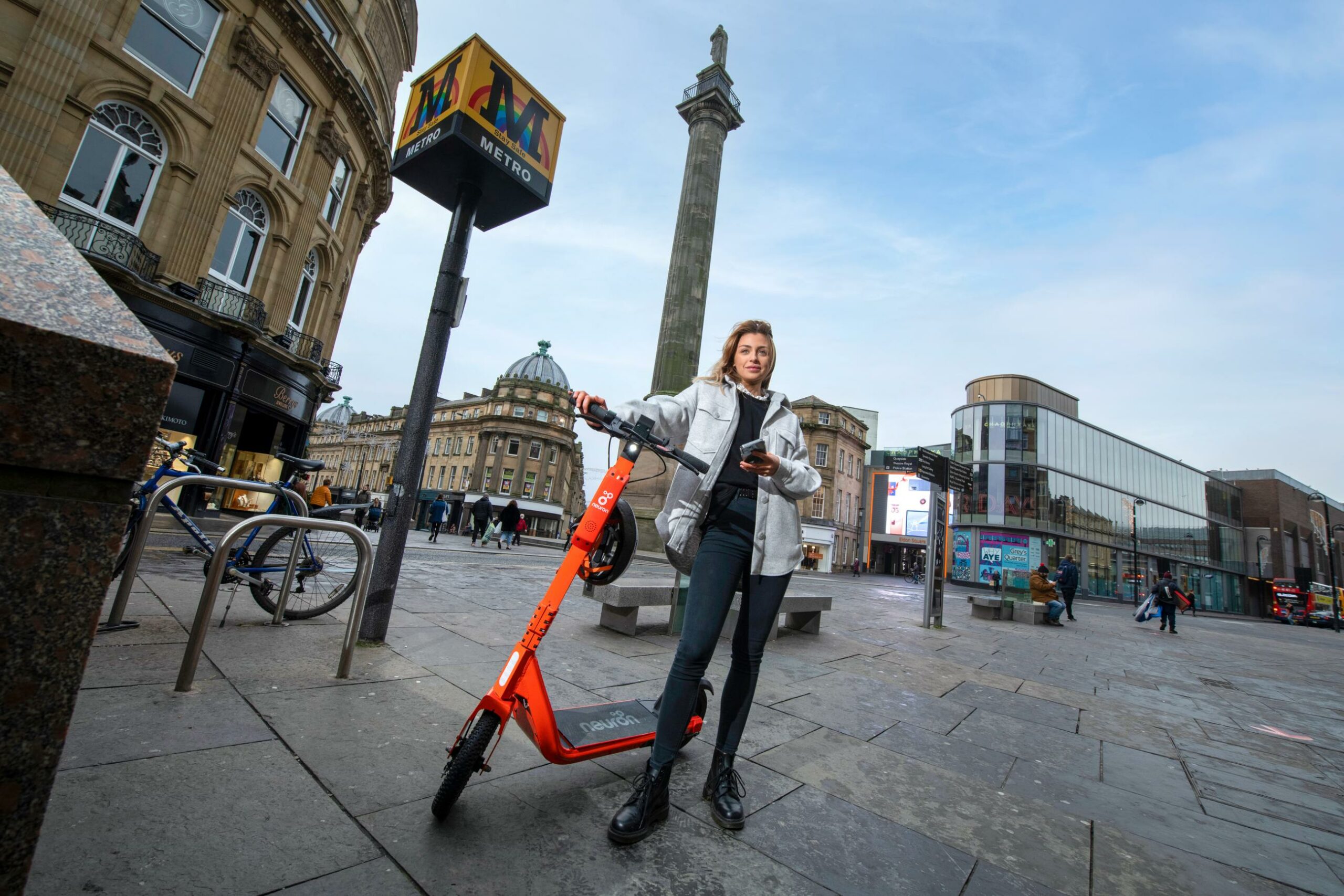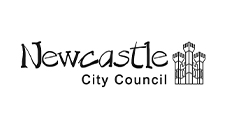Covid-19 created a need for alternative socially distanced transport options in Newcastle.
As the region’s economic centre, 58 per cent of Newcastle’s workforce commute from neighbouring local authorities each day.
Much of this commuting is by public transport with the city enjoying the second highest level of bus use, and the third highest light rail use in the UK.
E-scooters are a great socially-distanced transport option for those that really must travel.
Zachary Wang, CEO of Neuron Mobility
During the Covid-19 pandemic, people were discourage from using public transport by safety concerns and government guidance.
In planning for people returning to the city centre after lockdown, Newcastle City Council needed to find ways to support people in taking safe, low carbon transport alternatives to private car use.
Solving the problem
In 2020, Newcastle City Council worked with its Innovation Partner, Urban Foresight, to develop plans to trial a shared electric scooter scheme.
Suitable transport corridors for the scooters were identified and a technical specification was developed to procure a supplier.
The trial was designed to contribute to national objectives to build robust evidence about the safety, benefits, public perceptions and wider impacts of e-scooters. Working with the Department for Transport, this will inform legal changes that may be necessary after the trial period ends.
A further objective was to ensure that the operator committed to share real-time data. This requirement was set to support the council’s commitment to open data, and to support future ambitions for a mobility as a service platform.
Key outcomes
The published tender attracted significant interest resulting in a contract being awarded to Neuron Mobility in late 2020.
Neuron committed to run the service at zero cost to the council, with Neuron funding the deployment and operation of up to 250 e-scooters in the city. The project therefore achieved a significant inward investment which directly benefitted local residents and visitors to Newcastle.
An initial deployment of e-scooters took place in February 2021, with significantly increased numbers being made available during the 12-month trial scheme.
During lockdown, the e-scooters were primarily used by key workers. Travel was restricted within a geofenced zone that included Newcastle’s two main hospital sites and the city centre.
The scheme will be evaluated in 2021, with the potential to extend it beyond the initial 12-month trial period.
Cllr Arlene Ainsley, cabinet member for transport and air quality at Newcastle City Council, said: “The e-scooters offer a safe, convenient and low-carbon transport option for people and we very much hope they will play an important role in helping to transform the way we travel around our city.”
Note this project has been extended. You can learn more about it here: https://ncleus.com/news/citys-e-scooter-trial-to-be-extended/





